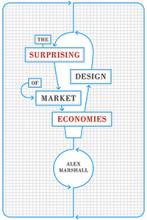Fast, affordable Internet access for all.
Lawsuits
Content tagged with "Lawsuits"
Displaying 571 - 580 of 775Monticello Moves Closer to Settlement with Bondholders
Monticello Moves Closer to Settlement with Bondholders
Monticello Moves Closer to Settlement with Bondholders
Monticello Moves Closer to Settlement with Bondholders
Monticello Moves Closer to Settlement with Bondholders
Monticello Moves Closer to Settlement with Bondholders
Monticello Moves Closer to Settlement with Bondholders
Alex Marshall Examines Electricty / Internet Parallels
“My answer has been, as it is tonight, to point out these plain principles,” Roosevelt told the crowd. “That where a community -- a city or county or a district -- is not satisfied with the service rendered or the rates charged by the private utility, it has the undeniable basic right, as one of its functions of government, one of its functions of home rule, to set up ... its own governmentally owned and operated service.”
While FDR was referring to electricity in 1932, he could easily be speaking about today's critical need for Internet connectivity. Fortunately for a growing number of people in our country, many local leaders share his sentiments and those communities are investing in community owned telecommunications networks.
Government Technology recently reposted a Governing article by Alex Marshall, a Senior Fellow at the Regional Plan Association in New York City. The Director of our Telecommunications work, Christopher Mitchell, tells me he just bought Alex's new book from a local bookstore and has put it at the top of his reading list: The Surprising Design of Market Economies.
Marshall sees fiber optic connectivity as the utility of today and tomorrow. He explores the question of who should provide access - public institutions or the private market? In his research, Marshall finds that many local communities are not waiting for an "official" answer to that question and are taking control of getting their citizens online.
Marshall spoke with Nick Braden from the American Public Power Association (APPA):
Alex Marshall Examines Electricty / Internet Parallels
“My answer has been, as it is tonight, to point out these plain principles,” Roosevelt told the crowd. “That where a community -- a city or county or a district -- is not satisfied with the service rendered or the rates charged by the private utility, it has the undeniable basic right, as one of its functions of government, one of its functions of home rule, to set up ... its own governmentally owned and operated service.”
While FDR was referring to electricity in 1932, he could easily be speaking about today's critical need for Internet connectivity. Fortunately for a growing number of people in our country, many local leaders share his sentiments and those communities are investing in community owned telecommunications networks.
Government Technology recently reposted a Governing article by Alex Marshall, a Senior Fellow at the Regional Plan Association in New York City. The Director of our Telecommunications work, Christopher Mitchell, tells me he just bought Alex's new book from a local bookstore and has put it at the top of his reading list: The Surprising Design of Market Economies.
Marshall sees fiber optic connectivity as the utility of today and tomorrow. He explores the question of who should provide access - public institutions or the private market? In his research, Marshall finds that many local communities are not waiting for an "official" answer to that question and are taking control of getting their citizens online.
Marshall spoke with Nick Braden from the American Public Power Association (APPA):



